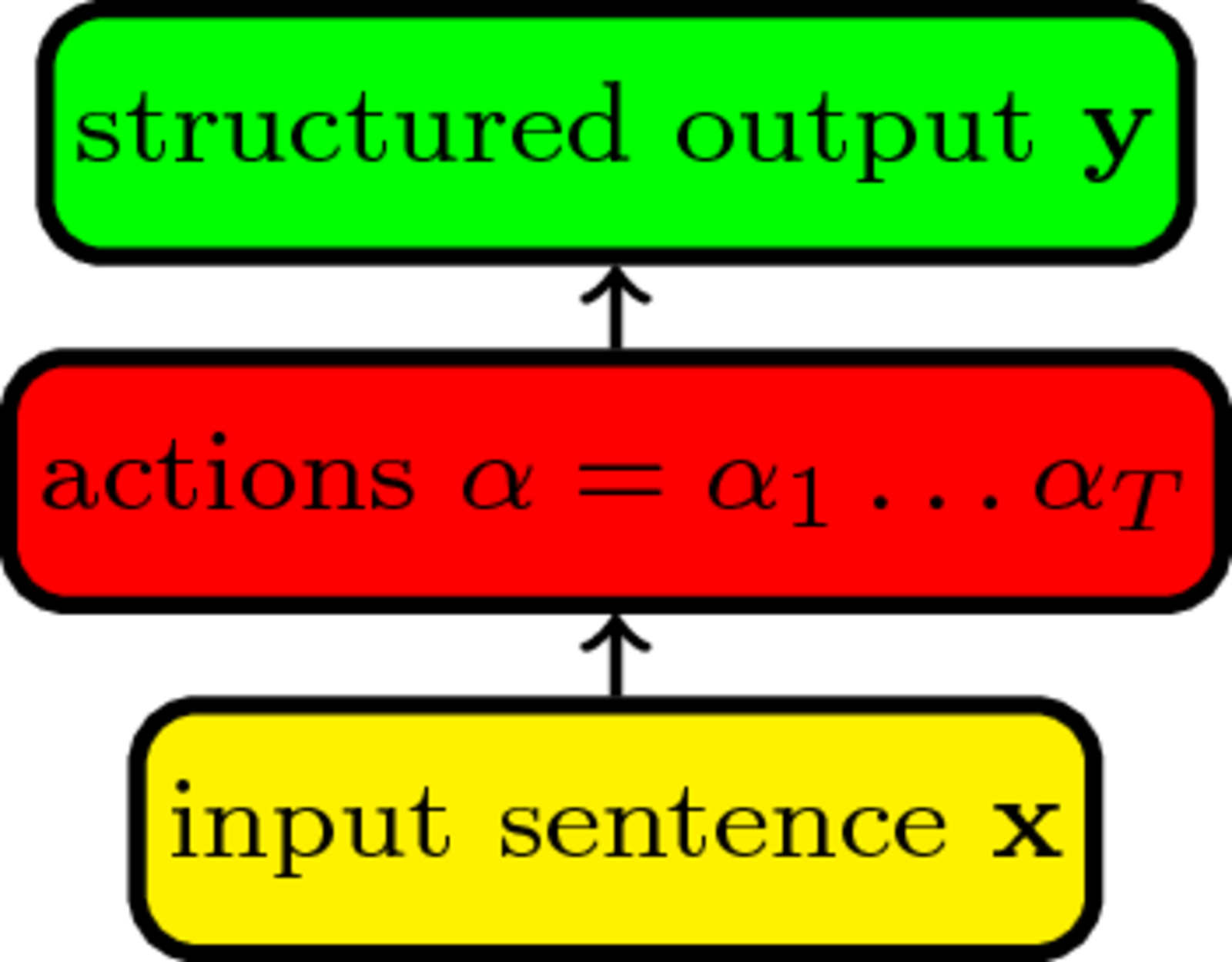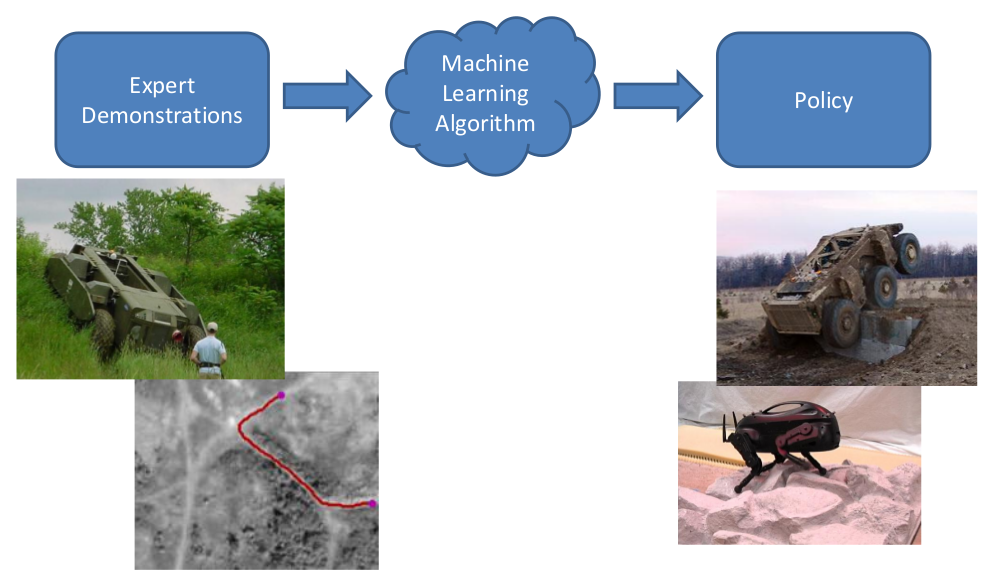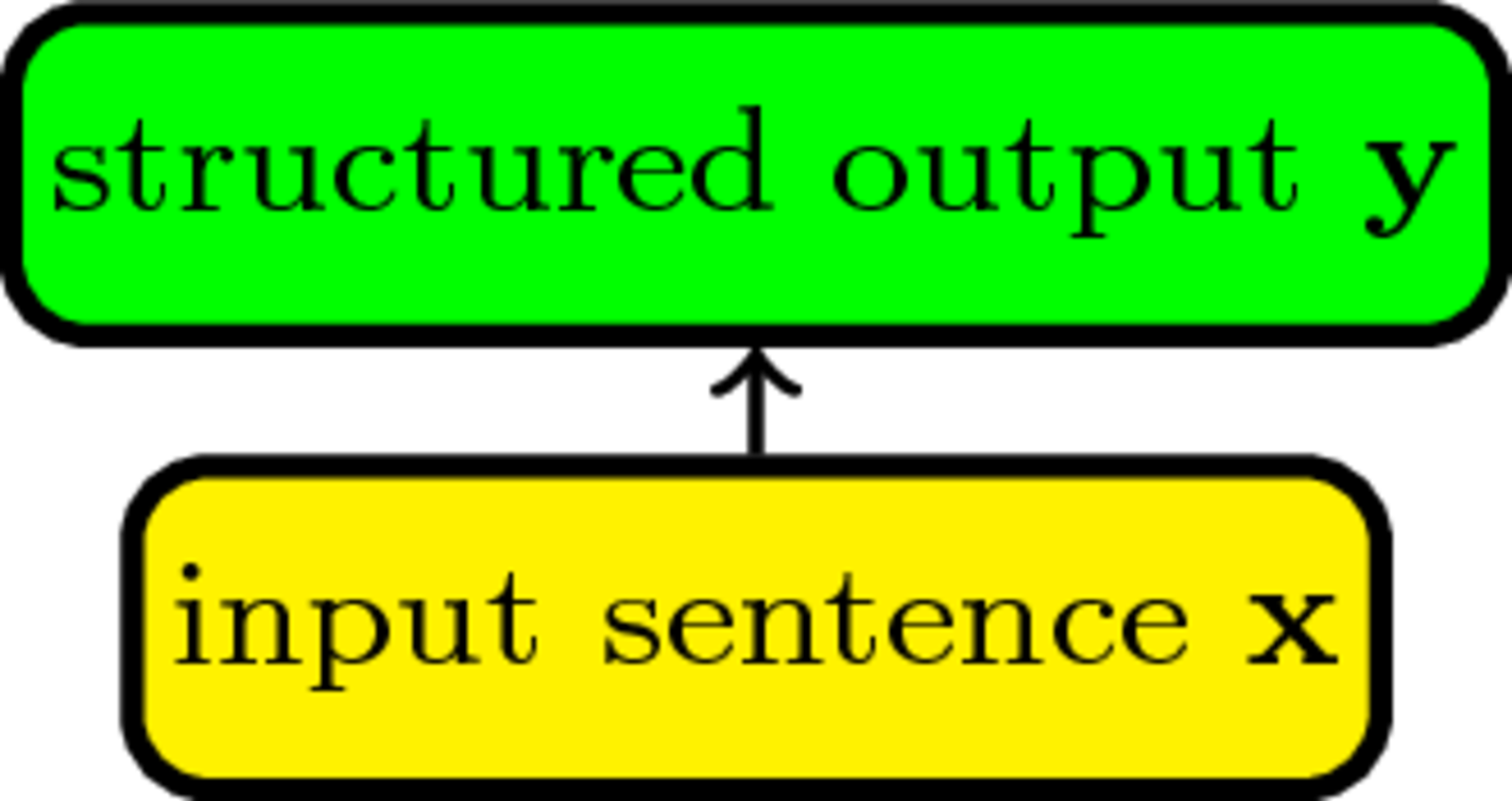Imitation learning for structured prediction
in natural language processing
Andreas Vlachos, Gerasimos Lampouras
{a.vlachos,g.lampouras}@sheffield.ac.uk
Department of Computer Science
University of Sheffield
Sebastian Riedel
s.riedel@ucl.ac.uk
Department of Computer Science
University College London
Your name sounds familiar¶
 Imitation learning: an advanced behavior whereby an individual observes and replicates another's behavior
Imitation learning: an advanced behavior whereby an individual observes and replicates another's behavior
Autonomous helicopter flight
(Coates et al., 2008)

And more: outdoor navigation (Silver et al., 2008), Super-Mario (Ross et al., 2011), autonomous driving (Zhang and Cho, 2017)...
Incremental coreference resolution
(Clark and Manning, 2015)

Recurrent Neural Network training
(Ranzato et al., 2016)

Search-based structured prediction (Daumé III et al., 2009)
Imitation Learning in a nutshell¶
Meta-learning: better model (≈policy) by generating better training data from demonstrations.
But: we train a classifier to predict
actions constructing the output.
Actions not in gold;
IL is rather semi-supervised

Why should I care?¶
In NLP we train classifiers to imitate experts in many tasks:
- syntactic parsing (Ballesteros et al., 2016)
- cofererence resolution (Clark and Manning, 2015)
- semantic parsing (Goodman et al., 2016)
- natural language generation (Lampouras and Vlachos, 2016)
Imitation learning has been used to improve accuracy in all the above with SOTA results!
Part 1: Imitation Learning for Structured Prediction¶
Imitation learning algorithms:
- Dataset Aggregation (DAgger)
- V-DAgger
- Locally Optimal Learning to Search (LOLS)
Interpretations and connections
- Reinforcement Learning
- Recurrent Neural Networks
Part 2: NLP Applications and practical advice¶
Applications:
- Dependency parsing
- Natural language generation
- Semantic parsing
Practical advice
- Expert policy definition
- Accelerating cost estimation
- Troubleshooting
Outcomes¶
Understand how IL works via unified algorithmic presentations
Clarify its connections to other learning frameworks
Know representative NLP applications
Recognize when and how to apply IL





